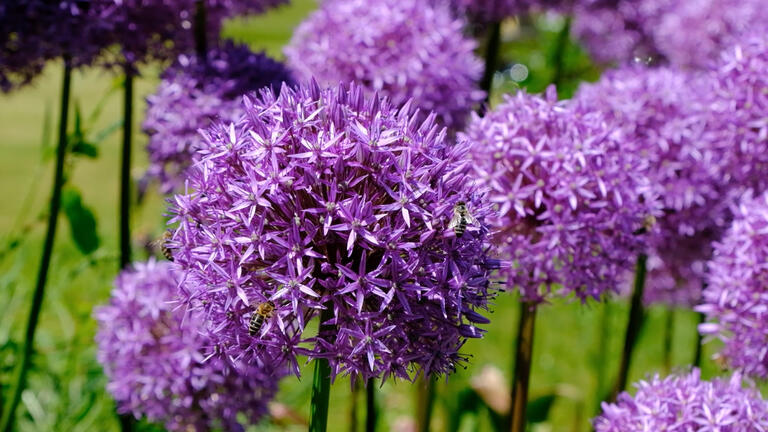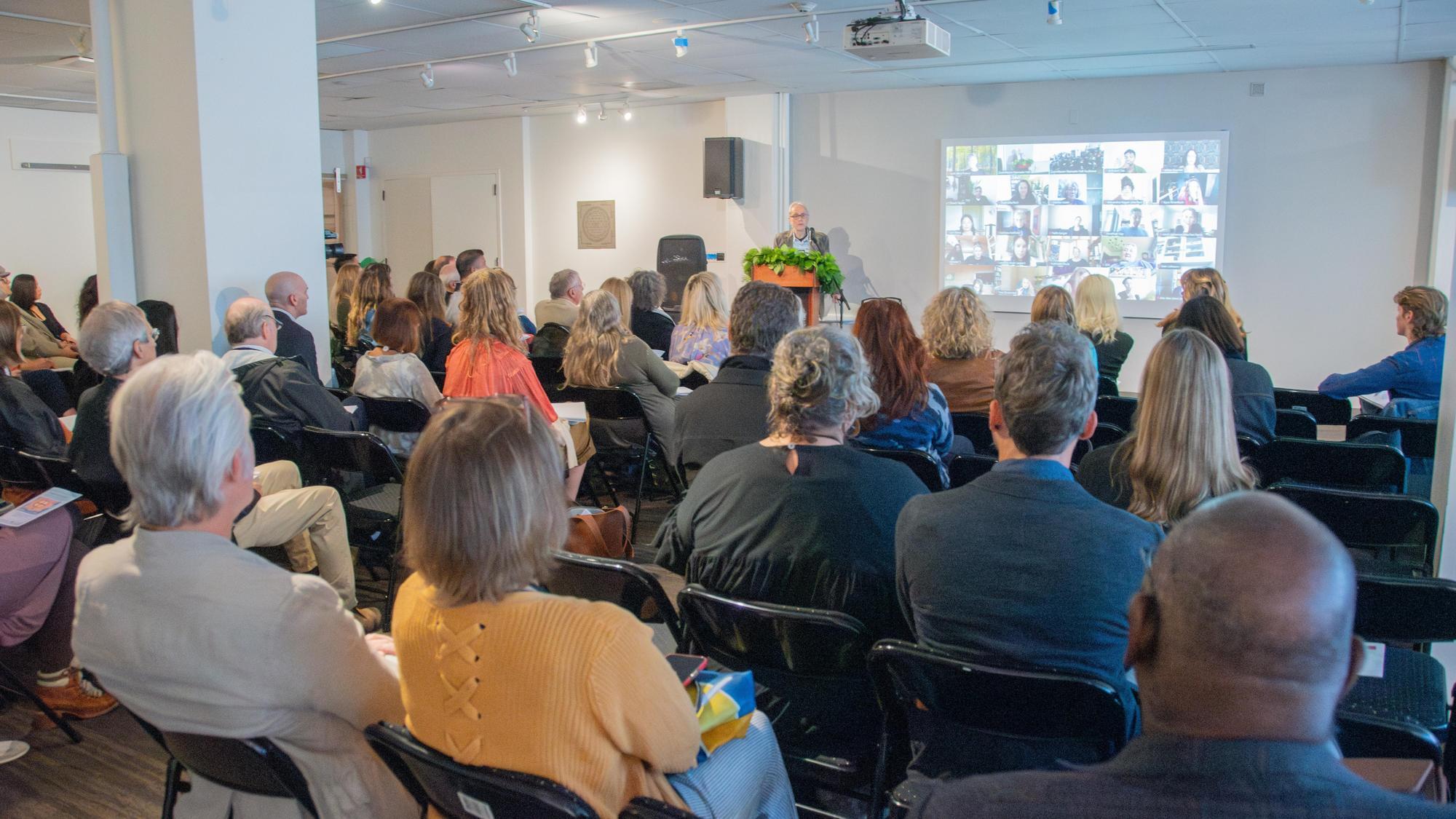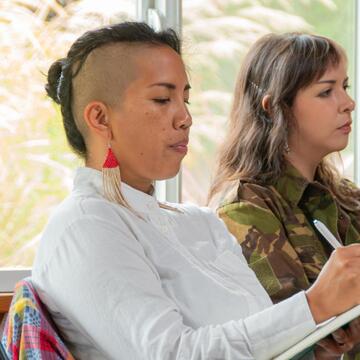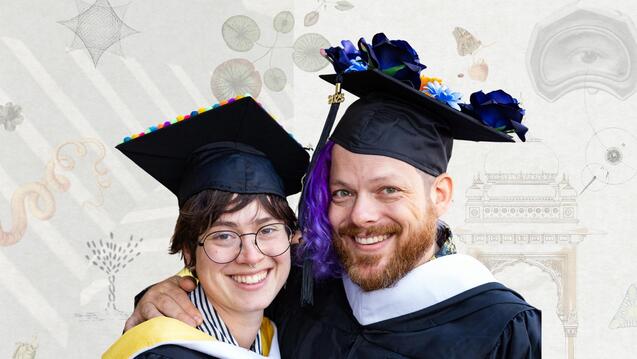
Master of Arts in East-West Psychology
Program Overview
Our Approach
CIIS’ Master of Arts in East-West Psychology is a nonclinical, non-license-oriented psychology degree that prepares a new type of integral psychospiritual practitioner and scholar who is educated at the intersection of the world’s wisdom traditions and sacred practices of East, West, and Earth. Our students become “meta-psychologists” who bring mentoring, healing, knowledge, communication, and mindfulness skills into a rapidly changing world.
The program is designed to provide flexibility that allows students to explore a variety of Western, Eastern, and Indigenous approaches to psychology and spirituality. The foundational courses engage in collaborative inquiry around the process of producing knowledge then students follow a unique path of electives to pursue their individual academic and career goals.
Throughout the program students collaborate closely with fellow classmates and faculty advisors. In the final semester, students participate in an Integrative Seminar which involves creating and presenting a capstone project that represents the cumulation of study.

Teaching and Research Opportunities
East-West Psychology students are given the opportunity to work as paid teaching and research assistants.
Possible responsibilities for teaching assistants include facilitation of experiential learning, teaching portions of a class, working with students outside the classroom on projects, providing feedback to the faculty member on student learning and perceptions, and reading student papers and giving feedback.
Research assistants assist faculty in specific research areas, performing tasks such as annotated bibliographies, scholarly networking, and maintaining scholarly databases.
Career Paths
The East-West Psychology master’s program is a nonclinical psychology degree. Students may integrate the psychological related material with their previous mental health professional experience, but the goal of this program is to empower the next generation of change-makers. Students in our program are trained in comparing alternative viewpoints, articulating complex ideas and imagining new ways of being. Additionally, students may use the practical training offered through our certificates to supplement their career goals.
East-West Psychology graduates go on to work as:
- Educators, researchers, and writers
- Advocates, activists, and community organizers
- Environmental stewards and eco-leaders
- Entrepreneurs and consultants
- Counselors and mental health para-professionals
- Nonprofit leaders
Curriculum
The master’s in East-West Psychology at CIIS is a two-year program offered in two formats, online and in-person.
Our online program is 36 units and courses are taught both in both synchronous and asynchronous formats. Students should be prepared to attend some classes in real time and engage in discussion forums through our online portal.
Our in-person program is 37.4 units. Students may take some courses online but 51% of courses must be attended in person. For some online courses students should be prepared to attend classes in real time.
All students have required coursework in psycho-spiritual practice, including eastern, western, indigenous, contemporary participatory spirituality, and socially engaged practices and service learning.
Working closely with their advisors, students choose electives that support their research subject and are given the opportunity to specialize in one of the following areas: Asian Psychologies, Depth Psychology, Ecopsychology, Indigenous Traditions, Integral and Transpersonal Psychology, East-West Spiritual Counseling, Culture and Psychology, or Psychospiritual practice.
Curriculum Highlights
EWP-6127 Introduction to Dreamwork (3 units) This course provides students with a foundation of traditional and contemporary theories about dreams and dreaming and develops techniques for interpretive, non-interpretive and integrative approaches, drawing from depth psychology, archetypal psychology, Gestalt psychotherapy, as well as from transpersonal and indigenous approaches. The class uses lecture, discussion as well as multi-modal inquiries and embodied practices to facilitate the unfolding and understanding of dreams. The experiential aspect of this course is designed for a meaningful and safe exploration of the potential for wisdom and healing in dreams. Students will gain or refine skills in working with dreams and will be able to apply tools in their personal lives as well as in their counseling practice.
EWP-6496 Indigenous and Shamanic Trdtns (3 units) This course explores indigenous knowledge and traditions from the perspective of ancient and current life practices and beliefs of indigenous peoples from all over the planet. Shamanic techniques that arose from indigenous worldviews are studied along with modern-day neo-shamanic practices. The animistic belief systems shared by most Earth-based peoples are explored to understand not only indigenous spiritual traditions but also ourselves.
EWP 6124: Chan/Zen Buddhism in Life and Art (3 units) This course explores the history and practice of Chan/Zen Buddhism in China and Japan through important life stories, teachings, and cultural manifestations (such as poetry, painting and landscape design) of the founding Patriarchs, masters, and artists. With origins in Indian yoga and Buddhism, Chan developed in China from around the 7th c. in close proximity to Daoist circles and later found fertile ground in Japan, where it became known as Zen. Similar to Dao, the concept and practice of Chan has been conducted through self-cultivation in traditions of intellectual thought and culture in both monastic and household literati settings. The course will trace the historical development of some of these traditions, continuing to contemporary times.
-
All classes 3 units unless otherwise specified.
I. Core Requirements—7-8 Units
EWP 6000 EWP Community Retreat (1 unit)
EWP 6001 Introduction to East-West Psychology (2 units)
EWP 6330 Knowledge Work and the Modern Academy (Online, 1 unit)Select one of the following:
EWP 6014 Civilizations in Transition: From Shadow to Soul
EWP 6034 Modernity, Colonialism, and Transcultural Hermeneutics
EWP 6114 Auroville: The City of Dawn: An Immersive Research Experience
EWP 6329 Conscious Diversity: Inner and Outer - A Diversity Process Class (2 units)
EWP 7011 Indigenous Traditions: Ancestral Consciousness and Healing
EWP 6037 Ancestral MigrationsFinal Semester of M.A. coursework only:
EWP 6015 M.A. Integrative Seminar (1 unit)II. Directed Requirements, one from each of the following four categories—12 Units
Classes listed for each category are examples from our curriculum of what may be offered. Please check with your advisor for specific courses each semester. All courses listed are 3 units unless otherwise mentioned.East
EWP 6043 Introduction to Yoga Psychology
EWP 6124: Chan/Zen Buddhism in Life and Art
EWP 6320 The Dao of Life Cultivation in Chinese Traditions
EWP 6321 How to Cultivate Qi (1 unit)
EWP 6327 Transformative Themes in the Upanishads
EWP 6466 Introduction to Chinese Philosophy and PsychologyWest
EWP 6127 Introduction to Dreamwork EWP 6245 Archetypal Psychology
EWP 7311 Jungian Psychology and East-West Spirituality
EWP 6026 The Western Magical Traditions
EWP 6010 The Enchanted ImaginationEarth
EWP 6112 Wilderness Rites of Passage
EWP 6110 Spiritual Ecologies
EWP 6135 Yoga of the Earth Community
EWP 6685 Rage Against the Machine Mind: De-coupling from Internalized Techno-industrial Capitalism
EWP 6497 In Search of the Tree of Life: Systemic Constellations and ShamanismWorld
EWP 6128 Integral Yoga Psychology
EWP 6261 Psychology of Death and Dying: An Integral Approach
EWP 7794 Spiritual Counseling Skills 1: The Art of Listening
EWP 7795 Spiritual Counseling Skills 2: The Counseling Relationship
EWP 6055 Subtle Beings, Subtle WorldsIII. Optional Areas of Specialization (at least 9 units)
Classes listed for each area of specialization are examples from our curriculum of what may be offered. Please check with your advisor for specific courses each semester. All courses listed are 3 units unless otherwise mentioned.- Asian Psychologies
EWP 6028 Eastern Magical Traditions
EWP 6043 Introduction to Yoga Psychology
EWP 6113 Buddhist Psychospirituality Through Asian Art
EWP 6124: Chan/Zen Buddhism in Life and Art
EWP 6320 The Dao of Life Cultivation in Chinese Traditions
EWP 6321 How to Cultivate Qi (Life Energy)
EWP 6326 Chinese Mind-Body Healing Systems: An Interdisciplinary Approach
EWP 6327 Transformative Themes in the Upanishads
EWP 6681 Wisdom Texts, East and West
EWP 7611 Sri Aurobindo and Modern Thought - Depth Psychology
EWP 6027 The Living Symbol: Fairy Tales and the Individuation Process in the Work of Marie-Louise von Franz
EWP 6045 Jung and Nature
EWP 6149 Animal Dreams: Visitations from the Wild Psyche
EWP 6245 Archetypal Psychology
EWP 7311 Jungian Psychology and East-West Spirituality
EWP 9406 Jung’s Red Book
EWP 6047 Re-storying Ourselves and Our World - Ecopsychology
EWP 6107 Ecopsychology and Expressive Arts: Reawakening the Wild Heart of Being (1 unit)
EWP 6112 Wilderness Rites of Passage
EWP 6117 Ecospirituality and Creative Expression: Touching the Sacred Within and Without (1 unit)
EWP 6149 Animal Dreams: Visitations from the Wild Psyche (1 unit)
EWP 6320 The Dao of Life Cultivation in Chinese Traditions EWP 6325 Psyche, Self, and Nature
EWP 6497 In Search of the Tree of Life: Systemic Constellations and Shamanisms - Indigenous Traditions
EWP 6037 Ancestral Migrations: Honoring our Family Journeys
EWP 6125 Integration of Expanded States of Consciousness
EWP 6149 Animal Dreams: Visitations from the Wild Psyche (1 unit)
EWP 6682 Respect, Kinship, and Love: An Indigenous and Cross-Cultural Wisdom Perspective
EWP 7011 Indigenous Traditions: Ancestral Consciousness and Healing - Integral and Transpersonal Psychology
EWP 6043 Introduction to Yoga Psychology
EWP 6261 Psychology of Death and Dying: An Integral Approach
EWP 6752 Transpersonal Psychology - East-West Spiritual Counseling
EWP 6127 Introduction to Dreamwork
EWP 6261 The Psychology of Death and Dying: An Integral Approach
EWP 7311 Jungian Psychology and East-West Spirituality
EWP 6321 How to Cultivate Qi
EWP 6128 Integral Yoga Psychology - Culture and Psychology
EWP 6019 Original Thinking: Land, Language and Consciousness from East-West and Indigenous Perspectives
EWP 6026 Magic and Mysticism: The Western Magical Traditions
EWP 6043 Introduction to Yoga Psychology
EWP 6113 Buddhist Psychospirituality Through Asian Art
EACTS 6116 Auroville, “City of Dawn”: An Immersive Research Experience
EWP 6320 The Dao of Life Cultivation in Chinese Traditions
EWP 6326 Chinese Body-Mind Healing Systems: An Interdisciplinary Approach
EWP 7011 Indigenous Traditions: Ancestral Consciousness and Healing - Psychospiritual Practice
EWP 6088 The Song of the Body: Embodied Expressive Arts in the Unfolding of Soul (1 unit)
EWP 6112 Wilderness Rites of Passage
EWP 6149 Animal Dreams: Visitations from the Wild Psyche (1 unit)
EWP 6204 The Body in the Transformation of Consciousness: Awakening the Joy at the Heart of Being (1 unit)
EWP 6320 The Dao of Life Cultivation in Chinese Traditions
EWP 6321 How to Cultivate Qi (Life Energy) (1 unit)
EWP 6328 Phenomenology of the Body
IV. General Electives (at least 7-8 units)
- Asian Psychologies
Entry Requirements
An undergraduate major in psychology is not required, but applicants should have a strong interest in psychology. Students with insufficient background in psychology may be required to take specific courses while in the program.
Successful candidates for admission into our M.A. programs typically have the following qualifications: a vision that is compatible with our program's mission; a path of personal and/or spiritual growth; sufficient maturity and stability to pursue independent inquiry; basic competence in communication and dialogical skills; demonstration of respect for a diversity of viewpoints; the ability to clearly articulate educational and professional goals; basic scholarly writing skills; and the capacity to identify a prospective specialization that is consistent with the program's mission and resources.
Required Application Materials
Your application is your opportunity to share who you are. To be considered essays and written responses must be your own authentic work.
Online Admissions Application: Begin the application process by submitting an online graduate application at the link below and submitting the nonrefundable $68 application fee payment.
Degree Requirement: An undergraduate degree (B.A., B.S., or the equivalent) from an accredited college or university.
Minimum GPA: A GPA of 3.0 or higher in previous coursework is required. However, a GPA below 3.0 does not automatically disqualify an applicant and CIIS will consider a prospective student whose GPA is between 2.0 and 3.0. These individuals are required to submit a GPA Statement and are encouraged to contact our Admissions Team to discuss their options.
Transcripts: Official transcripts from all accredited academic institutions attended where 7 or more credits have been earned. Transcripts may be sent digitally to materials@ciis.edu or mailed to CIIS in their official, sealed envelope. Transcripts from institutions outside the U.S. or Canada require a foreign credit evaluation through World Education Services (WES). CIIS will also accept foreign credential evaluations that are in a comprehensive course-by-course format from the current members of the National Association of Credential Evaluation Services (NACES).
Admissions Essay: A five-to-seven page (typed, double-spaced) essay that answers the following:
- What life experience, values, emotional/spiritual insights, and aspirations have led you to apply to East-West Psychology?
- What are your educational, personal, and professional goals and objectives?
Academic Writing Sample: A piece of original academic writing of 2,000–4,000 words (eight to ten pages typed, double-spaced) meant to demonstrate the ability to express ideas and evaluate and critique existing scholarship in a chosen area. A sample that uses outside sources must include proper citations.
Two Letters of Recommendation: Letters of recommendation will be accepted from academic advisors, professors, professional supervisors, or someone able to attest to your ability to undertake the work required for your program. Recommenders should use standard business format and include full contact information-name, email, phone number, and mailing address.
Candidate Selection
Successful candidates for admission into our M.A. program typically have the following qualifications: a vision that is compatible with our program's mission; a path of personal and/or spiritual growth; sufficient maturity and stability to pursue independent inquiry; basic competence in communication and dialogical skills; demonstration of respect for a diversity of viewpoints; the ability to clearly articulate educational and professional goals; basic scholarly writing skills; and the capacity to identify a prospective specialization that is consistent with the program's mission and resources.
Events and Info Sessions
A Conference Celebrating C.G. Jung’s 150th Birthday at CIIS
Attend our in-person event on January 31 or online event on February 21. Get to know CIIS professors and community, and learn more about our bachelor's, master's, Ph.D. and professional certificate programs.



Take the Next Step
For over 50 years, CIIS has been at the forefront of education that integrates rigorous science, innovative scholarship, and social justice. You will learn from faculty at the forefront of their fields, local artists and activists, and a community of peers as passionate and dedicated as you. There’s never been a better time to be here – let’s build a healthier and more equitable world.



